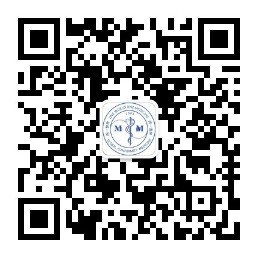目的探讨在微创经皮肾镜取石术(PCNL)后发生精神障碍(POP)的老年病人的影响因素和护理对策。方法对312例行微创经皮肾镜取石术老年患者的年龄、手术时间、术后低氧血症、高血压病及糖尿病史等临床资料和术前焦虑自评分进行单因素分析,并统计分析术后POP与上述因素的关系,采取相应的措施。结果本组25例患者术后出现POP,占同期老年人微创经皮肾镜取石术的8.01%(25/312)。POP的发生与年龄、手术时间、术后低氧血症、高血压病及糖尿病史有关。经过精心治疗及护理后所有患者精神障碍症状消失,治愈出院。结论微创经皮肾镜取石术后发生精神障碍(POP)的老年病人,其发生与老年患者的年龄、手术时间、术后低氧血症、高血压病及糖尿病史有关,加强围手术期的心理护理,预防低氧血症,避免使用引起精神障碍的药物,控制血压和血糖,可以减少POP的发生。
当前位置:首页 / 老年人微创经皮肾镜取石术后精神障碍的原因分析及对策
论著
|
更新时间:2015-05-21
|
老年人微创经皮肾镜取石术后精神障碍的原因分析及对策
Analysis of the causes of postoperative psychonosema in elderly patients and management strategies after minimally invasive percutaneous nephrolithotomy
微创医学 201304期 页码:409-411
作者机构: 解放军三O三医院泌尿外科
基金信息: 收稿日期: 2013-03-30
基金项目广西科学技术研究与开发项目(合同号:桂科攻1298003-8-3)
- 中文简介
- 英文简介
- 参考文献
Objective To analysis the causes of postoperative psychonosema( POP) in elderly patients and the nursing strategies after minimally invasive percutaneous nephrolithotomy ( PCNL) . Methods Clinical data of 312 elderly cases of minimally invasive PCNL were reviewed. Causes of POP were analyzed based on single factor analysis between the onset of POP and clinical data,including age,operation time,postoperative hypoxemia,hypertension,diabetes,and preoperative Self-Rating Anxiety Scale score,and corresponding nursing intervention strategies were carried out. Results The rate of POP after PCNL were 8. 01%( 25 /312) , and the onset of POP was correlated with age,operation time,postoperative hypoxemia,hypertension,and diabetes. POP symptoms disappeared in all cases with treatment. Conclusions Age,operation time,postoperative hypoxemia,hypertension,and diabetes are closely related to the incidence of POP after PCNL. Strengthening perioperative psychological nursing,preventing hypoxemia,avoiding using drugs causing psychonosema,and controlling blood pressure and blood glucose can decrease the occurrence of POP.
- ref




 注册
注册 忘记密码
忘记密码 忘记用户名
忘记用户名 专家账号密码找回
专家账号密码找回 下载
下载 收藏
收藏
